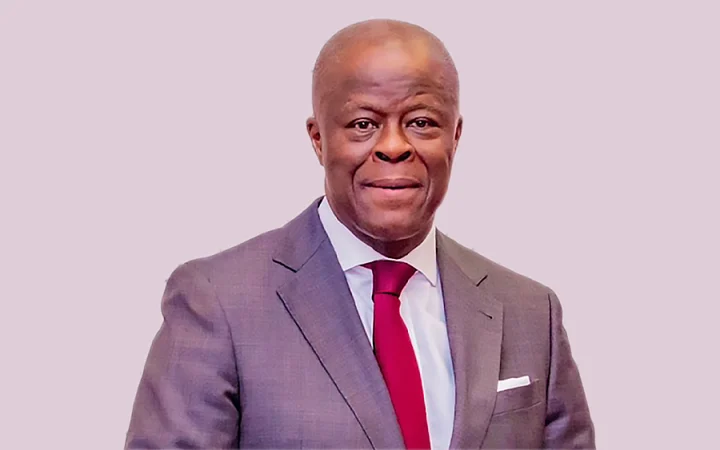Nigeria’s Minister of Finance and Coordinating Minister of the Economy, Wale Edun, says the country’s $4 billion trade surplus recorded in the second quarter of 2025 is a strong indicator that the economy is on a steady path to recovery and stabilisation. Edun, who disclosed the figures during a media briefing in Abuja on Tuesday, explained that the surplus reflected the combined effect of ongoing economic reforms, improved export earnings, and a gradual decline in import dependence.
According to the minister, Nigeria’s merchandise exports in Q2 2025 stood at $18.2 billion, compared to $14.2 billion in imports, leaving a positive trade balance of $4 billion. This marks the third consecutive quarterly surplus since late 2024, a trend Edun described as evidence of realignment in the external sector and a testament to fiscal and monetary measures working in tandem. He stressed that the trade surplus was not just a statistical achievement but a turning point in Nigeria’s economic narrative, moving the country away from years of current account deficits.

Edun attributed the surplus largely to higher crude oil output, which averaged 1.55 million barrels per day in Q2, alongside improved global oil prices. However, he was quick to note that non-oil exports also played a critical role, with agricultural products, manufactured goods, and solid minerals accounting for more than 30 percent of total export earnings. He highlighted cocoa, sesame seeds, cashew nuts, and fertilisers as products that saw impressive export growth, while the global demand for Nigeria’s solid minerals, particularly lithium and gold, continued to rise. The minister said government incentives such as export rebates, reduced port clearance times, and targeted credit facilities have begun to yield results, boosting competitiveness for Nigerian exporters.
On the import side, Edun said that measures to promote local production and import substitution had resulted in a noticeable slowdown in demand for certain foreign goods. Imports of refined petroleum products have declined due to the ramp-up of domestic refining capacity, with the Dangote Refinery and rehabilitated state-owned refineries beginning partial operations. This, he explained, was helping the country save foreign exchange while strengthening the naira.
The finance minister also noted that the surplus had contributed to stabilising the foreign exchange market, providing the Central Bank of Nigeria with greater liquidity to manage volatility. He observed that the naira had appreciated in recent weeks and that inflationary pressures were easing, even if single-digit inflation remained a long-term goal. He linked this improvement in macroeconomic stability to rising investor confidence, pointing to renewed capital inflows into Nigeria’s banking, telecom, and Eurobond markets.
Edun emphasised that the administration was committed to sustaining the trade surplus by continuing structural reforms, improving infrastructure, and enhancing trade facilitation. He pointed to ongoing rail, road, and port modernisation projects as well as active engagement with trading partners under the African Continental Free Trade Area agreement. The minister reiterated that supporting micro, small, and medium enterprises to scale up production for both local and export markets remained a top priority. He stated that economic stabilisation was not a one-off achievement but required sustained policies that promoted productivity, efficiency, and competitiveness.
Economic experts have largely welcomed the trade surplus but urged caution, noting that sustainability is key. Dr. Adaobi Nwosu, an economist at the University of Lagos, remarked that while the surplus was encouraging, it was partly driven by high oil prices, which remain volatile. She stressed the need to ensure non-oil exports continue to grow so the economy is less exposed to oil market fluctuations. She also pointed out that part of the decline in imports could be a reflection of reduced consumer purchasing power, which may not be a wholly positive development.
The Manufacturers Association of Nigeria commended the government’s efforts but called for further steps to address long-standing challenges such as inadequate electricity supply, high interest rates, and multiple taxation, all of which increase production costs. MAN’s Director-General, Segun Ajayi-Kadir, said Nigerian manufacturers were eager to take advantage of export opportunities but faced infrastructure bottlenecks and policy inconsistencies that must be resolved to make locally produced goods more competitive abroad. Similarly, the Nigerian Association of Chambers of Commerce, Industry, Mines, and Agriculture called for targeted export financing, especially for small-scale producers.
Edun concluded by stating that the government’s medium-term plan is to maintain an annual trade surplus of at least $5 billion by 2027, while gradually reducing Nigeria’s external debt servicing burden. He expressed optimism that the current trajectory could be maintained and strengthened, noting that the $4 billion surplus was a sign of stabilisation but that the ultimate goal was sustained, inclusive growth that improved living standards for all Nigerians.
With the government relying on continued policy reforms, foreign investment inflows, and export diversification, the coming quarters will determine whether Nigeria can turn this encouraging trade performance into a lasting economic rebound.
Support InfoStride News' Credible Journalism: Only credible journalism can guarantee a fair, accountable and transparent society, including democracy and government. It involves a lot of efforts and money. We need your support. Click here to Donate
